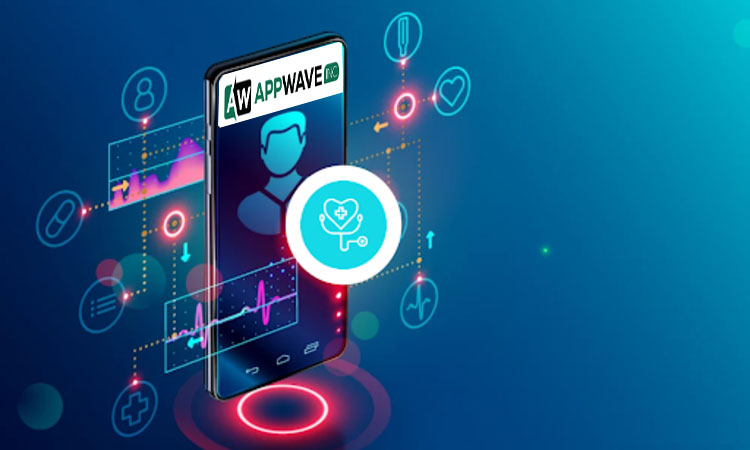You trust your phone with your banking passwords. Your location. Your biometric data. Maybe even your dating life. So why does it feel risky to trust it with your health?
In 2025, mobile apps are doing for healthcare what Uber did for taxis, except the stakes are way higher. We’re not just talking about convenience here. We’re talking about lives, diagnoses, prescriptions, and deeply personal health journeys, all digitized and living inside your smartphone.
And here’s the kicker: hackers know it.
The Great Paradox: Convenience Meets Consequence
From tracking our steps to scanning our skin for suspicious moles, healthcare mobile apps have become our unofficial health assistants. But behind the seamless UI and friendly reminders to hydrate lies a stark truth: health data is gold.
Valuable gold. Vulnerable gold.
Because the same mobile app that reminds you to take your blood pressure meds could be one poorly secured line of code away from leaking your entire medical history.
A 2025 HIPAA Journal report shows that 1.75 million individuals had their protected health information exposed in just one month. That’s not a blip; that’s a breach tsunami. And 79% of it? Hacking.
Now let’s layer on some growth:
The global mHealth market is projected to reach $81.71 billion this year and is expected to soar past $268 billion by 2034, according to Precedence Research.
So yeah, there’s a lot at stake. The healthcare world isn’t just digitizing; it’s decentralizing, personalizing, and mobilizing. And if you’re a provider, clinic, or digital health startup, you need to be asking:
Is your app part of the revolution or the next data leak headline?
Why Secure Mobile Apps Are No Longer Optional
Let’s break it down.
1. Patient Data Is Cyber Gold (And Ransomware Knows It)
You can cancel a stolen credit card. You can’t cancel a leaked diagnosis or therapy history. That’s why healthcare data fetches up to 10x more than financial data on the dark web. (Yep, even your cholesterol levels have black-market value.)
Case in Point: In 2025, the ransomware group LockBit 3.0 specifically targeted hospitals because, chillingly, they know healthcare organizations are more likely to pay quickly to avoid risking patient lives. (Source: Health-ISAC, May 2025)
2. Regulators Are Done Being Nice
HIPAA, GDPR, NHS, and more have escalated from “please comply” to “comply or get clobbered.”
The OCR fined Oregon Health & Science University $200,000 in March 2025 for mishandling access rights. That’s just for not providing a patient with their data promptly enough. Imagine what they’d do in the event of a breach.
Today’s non-negotiables for compliant healthcare apps:
- AES-256 encryption (the Fort Knox of digital security)
- Multi-Factor Authentication (MFA)
- Role-based access controls
- Secure data disposal
- Audit trails that don’t lie
Sound intense? That’s because it is. But don’t worry, it’s also doable (especially with the right partners. More on that later.)
3. Trust Is the New UX
People won’t use what they don’t trust. Full stop.
A secure, well-designed mobile app, whether it’s for iOS app development or Android app development, isn’t just about features. It’s about feeling safe.
Patients are far more likely to engage with apps that demonstrate clear privacy protections. More engagement means better health outcomes. Translation? Secure apps literally help save lives.
So What’s Actually Changing? Everything.
Secure mobile apps are quietly, yet radically, redefining how we access and experience healthcare. Here’s how:
A. Virtual Visits with Actual Privacy
Telemedicine isn’t just a COVID-era band-aid; it’s here to stay.
Thanks to secure healthcare mobile apps, doctors can now:
- AI-powered symptom checkers (like Ada Health, with a 90% accuracy rate)
- 24/7 chatbots for post-op support
- Remote patient monitoring for chronic illnesses
- Wearable integrations that can warn of cardiac events before you feel symptoms
According to Itboomi.com, telehealth apps experienced a 30% increase in usage in 2024, and predictive health features are expected to rise by another 20% in 2025.
However, this means squats without encryption. Imagine spilling your therapy session to your doctor only to have it pop up in a hacker’s inbox. No thanks.
B. EHR Access Without the Data Chaos
Let’s be real: most electronic health records (EHRs) are a mess that is siloed, outdated, and impossible to share across platforms.
Enter blockchain technology.
It’s not the crypto bros’ playground. We’re talking enterprise blockchain solutions that:
- Ensure immutable medical records
- Allow authorized providers instant access
- Eliminate duplicate testing and paperwork
“Building an EHR without blockchain is like skydiving without a backup chute.”
Dramatic? Maybe. Accurate? Absolutely.
C. Supply Chain That Doesn’t Lie
Counterfeit drugs kill. That’s not a metaphor; it’s a documented crisis.
Healthcare mobile apps using blockchain technology now offer:
- Real-time tracking from manufacturer to pharmacy
- Tamper-proof logs of drug movement
- Instant alerts for anomalies or recalls
According to Acropolium (2025), blockchain in the supply chain helps combat counterfeit medications and protects patients from fraudulent equipment. So yes, it matters, especially in developing nations or crisis zones.
D. Your Health, Personalized
Wearables, AI, and secure mobile apps = The age of hyper-personalized healthcare.
Apps like HealthifyMe are already utilizing AI to analyze sleep, diet, and vital signs, offering bite-sized nudges for improved living. These nudges are changing how we prevent illness, not just treat it.
“Personalized insights help users avoid chronic conditions before they start,” says Pyramidion Solutions (2025). And they do it without compromising your privacy. Win-win.
Blockchain: The Secret Sauce of Secure Health Apps
If mobile healthcare apps are the engine, blockchain is the seatbelt.
Let’s break down why:
- Immutability: No one can modify or alter data once it has been recorded.
- Decentralization: No single point of failure. That means fewer leaks.
- Patient Control: Patients can grant or revoke access to their records.
The market agrees: CoherentMI projects the healthcare blockchain market to balloon from $194.5M in 2025 to $796M by 2032.
In other words, you’re not too early; you’re right on time.
So… how do you build one
Spoiler: Not all devs are created equal. You don’t want the guy who “used to do e-commerce sites” touching your patient data stack.
What to Look for in a Mobile App Development Partner:
- HIPAA and GDPR fluency
- Security-first development lifecycle
- Experience with healthcare APIs, EHR systems, and blockchain integration
- Has hands-on experience with iOS app development and Android app development
“To build a truly secure app, you need to hire blockchain developers who understand enterprise blockchain solutions and the high stakes of healthcare,” says a lead engineer at Trango Tech.
Costs? They vary.
Basic mHealth apps: $20K–$60K
Enterprise-grade with AI and blockchain: $200K+
AES-256 encryption: Add $5K–$15K
MFA integration: Add $8K–$20K
Yes, it’s an investment. However, not paying HIPAA fines and/or losing patient trust forever is also a consequence.
Final Thoughts: This Isn’t Optional Anymore
Healthcare isn’t “going” digital. It is digital. The question is: will yours be safe, seamless, and smart, or is a lawsuit waiting to happen?
Healthcare mobile app development is no longer a “nice to have.” It’s a survival strategy.
And those built on blockchain? Even better. They future-proof your systems, protect your patients, and boost your reputation.
“Ignoring this shift is not an option in an era where data breaches are costly, and patient trust is paramount.”
Want to lead the pack in 2025 healthcare?
- Invest in a secure mobile app.
- Hire blockchain developers who know the stakes.
- Partner with Top Blockchain Development Services that specialize in enterprise blockchain solutions.
Because the only thing more expensive than building a secure app is cleaning up after an insecure one.
- How Secure Mobile Apps Are Transforming Healthcare in 2025 (And Why You Need One)
- In 2025, mobile apps are doing for healthcare what Uber did for taxis, except the stakes are way higher. We’re not just talking about convenience here.
- mobile apps, healthcare mobile apps ,
Related posts:
 Used Mobile in Dubai: Your Ultimate Guide to Buying Quality Phones at Affordable Prices
Used Mobile in Dubai: Your Ultimate Guide to Buying Quality Phones at Affordable Prices
 How a Mobile App Development Company in India Drives Innovation for Your Business
How a Mobile App Development Company in India Drives Innovation for Your Business
 Branded SMS Marketing in Karachi: Reach Customers with a Personal Touch
Branded SMS Marketing in Karachi: Reach Customers with a Personal Touch
 Android App Development: A Complete Beginner-to-Expert Guide
Android App Development: A Complete Beginner-to-Expert Guide
 PikaShow APK: Stream Free Movies, TV Shows, Sports & Live TV on Android
PikaShow APK: Stream Free Movies, TV Shows, Sports & Live TV on Android
 Why Hiring a Mobile App Development Company is Better Than Building In-House
Why Hiring a Mobile App Development Company is Better Than Building In-House
 Is Tablet Screen Repair Service Different from Smartphone Repair?
Is Tablet Screen Repair Service Different from Smartphone Repair?
 Laptop Battery Charging Problems: Causes, Fixes, and When to Call for Help
Laptop Battery Charging Problems: Causes, Fixes, and When to Call for Help







